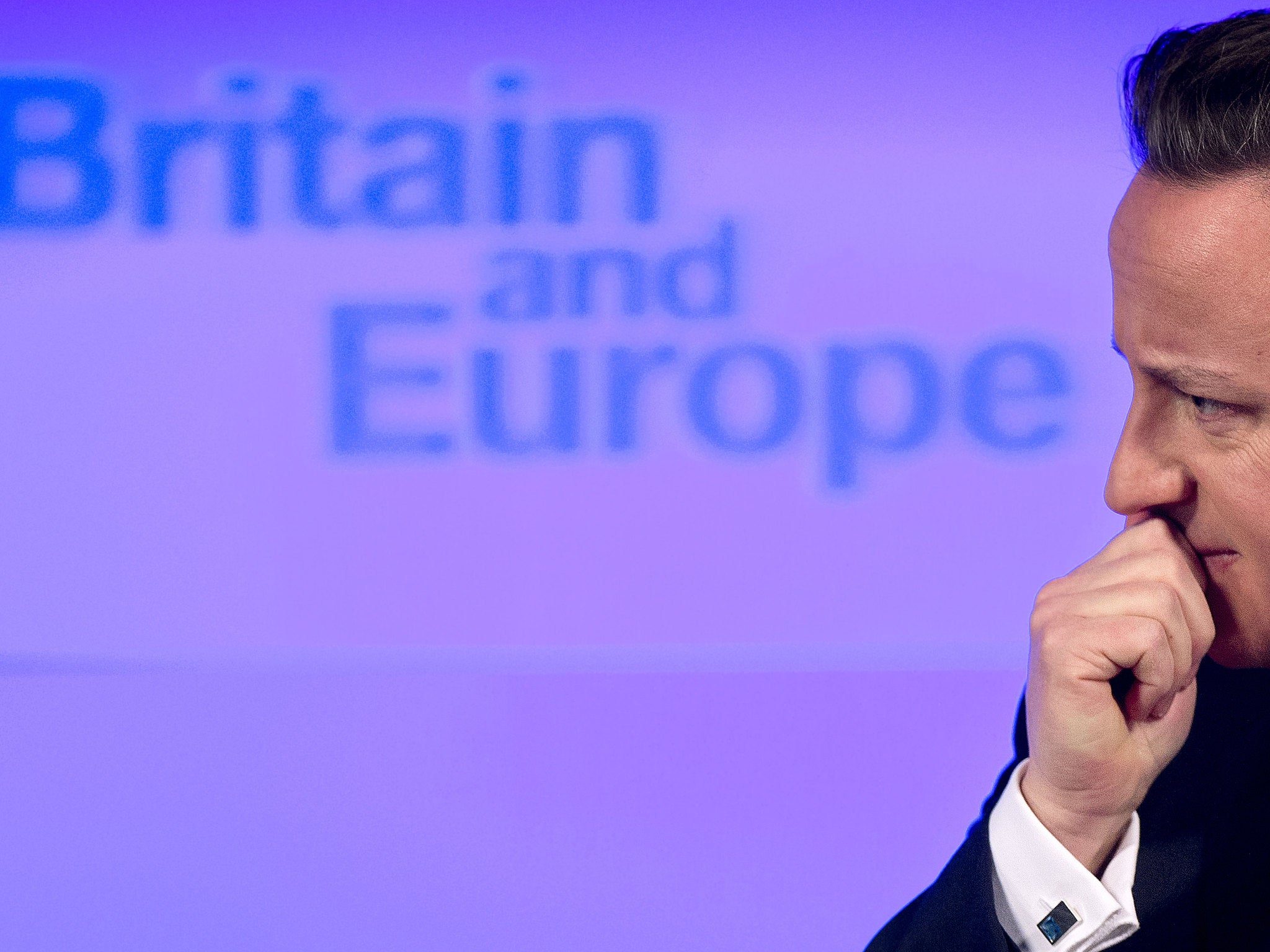Labour questions David Cameron's move to suspend the civil service impartiality rules for the EU referendum
The Government says purdah would be unworkable

Your support helps us to tell the story
From reproductive rights to climate change to Big Tech, The Independent is on the ground when the story is developing. Whether it's investigating the financials of Elon Musk's pro-Trump PAC or producing our latest documentary, 'The A Word', which shines a light on the American women fighting for reproductive rights, we know how important it is to parse out the facts from the messaging.
At such a critical moment in US history, we need reporters on the ground. Your donation allows us to keep sending journalists to speak to both sides of the story.
The Independent is trusted by Americans across the entire political spectrum. And unlike many other quality news outlets, we choose not to lock Americans out of our reporting and analysis with paywalls. We believe quality journalism should be available to everyone, paid for by those who can afford it.
Your support makes all the difference.Labour has raised concerns about David Cameron’s plans to suspend a rule guaranteeing civil service impartiality at election time for the EU referendum.
The Government does not want there to be a “purdah” period for the vote, a rule which usually prevents civil servants from making partial interventions that could affect results.
“Why are they changing the law to exempt the Government from the rules that make sure the Government doesn't use public funds or the government machine in the short campaign?” acting leader Harriet Harman said in parliament.
“The problem is it's a blanket exemption and we must have a legal framework on the face of the bill, we can't be left just to rely on ministerial restraint.”
Labour says it will campaign to stay in the EU but is critical of the plan to exempt the civil service from the usual rules that stop it interfering with elections.
The Foreign Secretary Philip Hammond however yesterday said it would be “unworkable and inappropriate” to have purdah for an EU referendum.
“The Government will want to be able to explain what has been agreed and how the British peoples' concerns have been addressed,” he said. “We want to make a recommendation on where the national interest lies.”
He added that the Government had “no intention” of spending “large amounts of public money” on either campaign.
The Government is expected to back the campaign to stay in the EU after a series of renegotiations are completely, though in theory David Cameron has kept open the possibility of supporting a campaign to leave if he does not achieve concessions.
Former Conservative Cabinet minister and eurosceptic Owen Paterson told the Foreign Secretary he believed the vote "could be seen as illegitimate” were purdah not applied.
The attempted intervention is not the first time the Government has raised eyebrows over the use of Britain’s supposedly impartial civil service during a referendum.
After the Scottish independence vote an inquiry found that Treasury officials had acted inappropriately during the campaign in making statements which could have influenced people to vote ‘No’.
The purdah rules are in place to prevent taxpayers’ money being spent on elections and giving incumbent governments unfair and undemocratic advantages.
Subscribe to Independent Premium to bookmark this article
Want to bookmark your favourite articles and stories to read or reference later? Start your Independent Premium subscription today.
Join our commenting forum
Join thought-provoking conversations, follow other Independent readers and see their replies
Comments